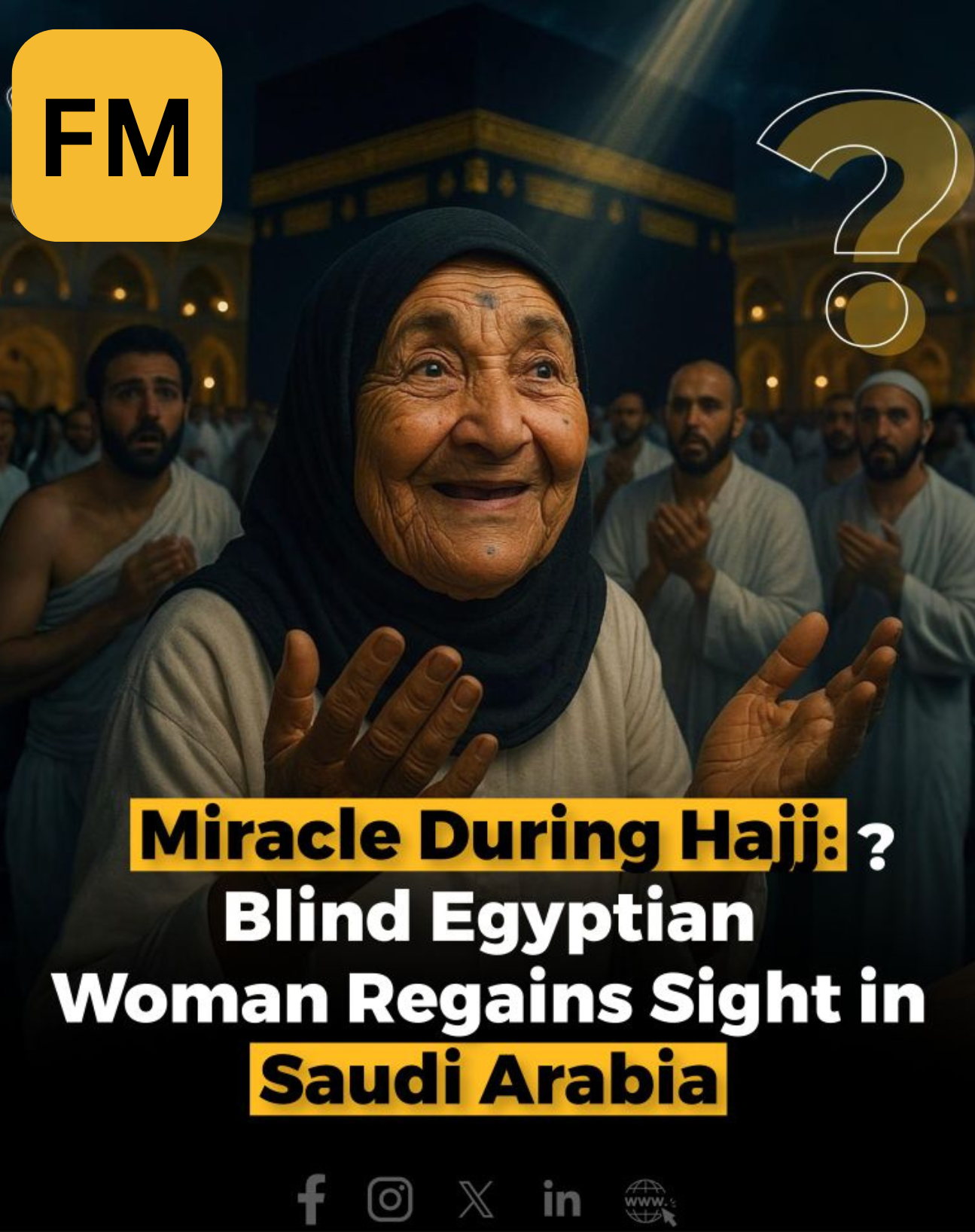Several media reports have recently highlighted the extraordinary story of a blind Egyptian woman who allegedly regained her sight during the Hajj pilgrimage in Mecca, Saudi Arabia. The incident has sparked widespread discussion, with many attributing the event to divine intervention, while others remain skeptical, calling for scientific scrutiny.
The Reported Miracle
According to various news sources, the woman, whose identity has not been fully disclosed, had been blind for years before embarking on the sacred Hajj journey. During her pilgrimage, while performing rituals near the Kaaba—Islam’s holiest site—she suddenly regained her vision. Witnesses, including fellow pilgrims, reportedly expressed astonishment, describing the event as a “miracle.” Videos and testimonies circulating on social media claim that the woman broke down in tears upon seeing for the first time in years, further fueling belief in a supernatural occurrence.
Faith and the Power of Hajj
For millions of Muslims, Hajj is not just a religious obligation but a deeply spiritual experience believed to bring divine blessings. Stories of miraculous healings, though rare, are not unheard of in Islamic tradition. Many faithful view this incident as a sign of God’s mercy, reinforcing the belief that sacred acts of worship can lead to extraordinary outcomes. Islamic scholars have referenced similar accounts in history where pilgrims experienced unexplained recoveries, often seen as divine rewards for unwavering faith.
Scientific Perspectives
While the faithful celebrate the event as a miracle, medical experts urge caution. Blindness can result from various conditions—some reversible, others permanent. Cases of “hysterical blindness” (a psychological condition where vision loss has no organic cause) have been known to reverse suddenly due to extreme emotional or spiritual experiences. Neurologists suggest that profound psychological shifts during intense religious experiences might trigger unexpected recoveries in rare cases.
Additionally, some forms of blindness caused by corneal damage or certain optic nerve issues could, theoretically, see improvement under specific but poorly understood circumstances. Without a thorough medical examination of the woman’s prior condition and recovery, experts hesitate to confirm or deny the possibility of a spontaneous cure.
Skepticism and Verification
Skeptics argue that such claims require rigorous verification before being accepted as miraculous. In the age of viral misinformation, unverified reports can spread quickly, leading to sensationalism. Saudi authorities and religious bodies have not yet issued an official statement on the incident, leaving room for doubt. Historically, some alleged miracles have later been explained by medical or psychological factors, emphasizing the need for evidence-based analysis.
Conclusion: A Matter of Faith or Science?
Whether viewed as a divine miracle or an unexplained medical phenomenon, the story of the Egyptian woman’s regained sight has captivated global audiences. For believers, it strengthens faith in the power of prayer and pilgrimage. For scientists, it presents an intriguing case that warrants further study. Unless conclusive evidence emerges, the incident will remain a topic of debate—celebrated by some as a heavenly sign and questioned by others as an unverified claim.
Regardless of perspective, the story underscores the profound impact of spiritual experiences on human lives, blurring the lines between medicine, psychology, and faith.

